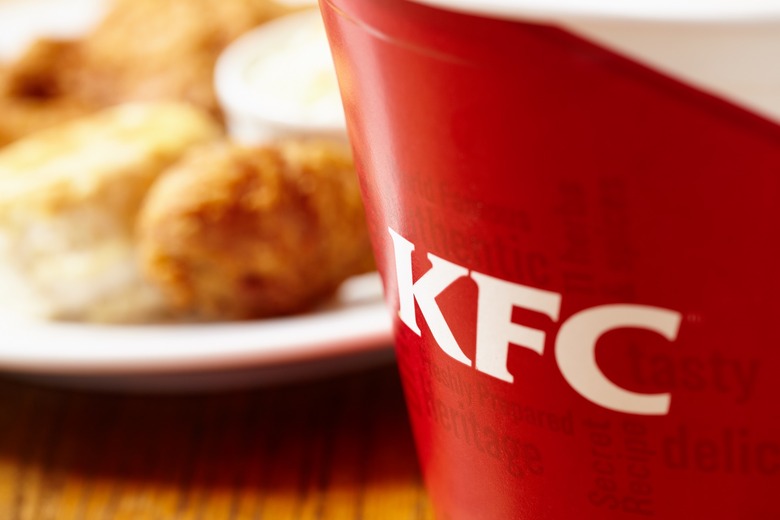KFC Franchise Owner Can't Advertise Chicken As Halal, Judge Says
Shortly after Afzal Lokhandwala opened his first KFC franchise in 2002, he began advertising locally that much of his restaurant's chicken was halal — a designation based on Islamic law that involves killing the animal through a cut to the jugular vein, carotid artery, and windpipe, according to BBC News.
This marketing method proved successful for the franchise owner, himself a practicing Muslim, so he opened five additional stores in Illinois near mosques and Muslim communities. Up until last year, KFC's corporate office was OK with this — the company even allegedly helped Lokhandwala identify halal-certified processors and distributors — but in 2016, he was told he would no longer be able to advertise the chicken as halal, Slate reports.
But Lokhandwala thought this would hurt his business, so he sued the famous chicken chain — and lost. Federal Judge John Robert Blakey ruled on January 23 that KFC has "the absolute right" to approve or deny store advertising.
KFC's justification for the change is a 2009 policy against making any religious claims; the chain decided it couldn't promise halal or kosher food because of varying interpretations of each religious diet. According to Religious News, KFC also allegedly said it can't guarantee that its restaurants' food hasn't been cross-contaminated with non-halal parts.
The Daily Meal has reached out to KFC for comment.
While halal food may still exist at KFC, restaurant operators aren't allowed to market it that way to customers. For more judicial guidelines, here are 21 odd food and drink laws from around the world.
